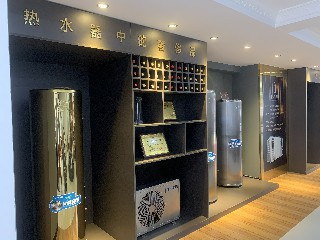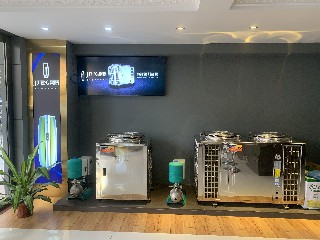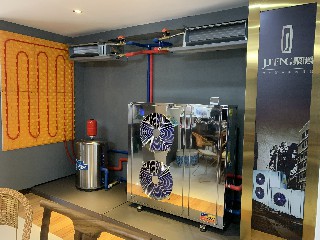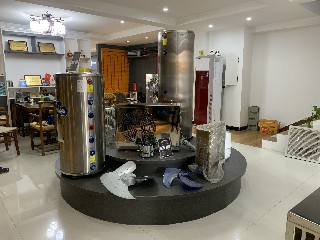The Advantages of Air Source Heat Pumps
An air source heat pump provides a clean way to heat buildings, free of all carbon emissions on site. It makes use of energy in the ambient air to provide an energy-efficient way of heating buildings.
Air source heat pumps are suitable for a wide variety of buildings and are particularly appropriate for low environmental impact projects.
They can be installed anywhere in the UK to provide space heating and domestic hot water.

They can be installed anywhere in the UK to provide space heating and domestic hot water.
The only energy used by a heat pump is electricity to power the compressor and the fans which transfer heat energy from the external air into the building. A well designed air source heat pump installation will deliver three times as much thermal energy (heat) as is used in electrical energy to drive the system.

Air source heat pumps have been widely used in North America, Sweden, Germany and Switzerland for many years. Typically they cost more to install than conventional heating systems. However, they have very low maintenance costs and can be expected to provide safe, reliable and emission-free heating for many years.
Air source heat pumps work best with heating systems which are optimised to run at a lower water delivery temperature than is commonly used in radiator systems. As such, they make an ideal partner for underfloor heating systems.

Air Source Heat Pumps save money. Heat pumps are much cheaper to run than direct electric heating systems. It's cheaper to run than oil boilers and can be cheaper than running gas boilers.
Because heat pumps can be fully automated they demand much less work than biomass boilers.
Heat pumps save space. There are no fuel storage requirements.
No need to manage fuel deliveries.
No risk of fuel being stolen.
Heat pumps are safe. There is no combustion involved and no emission of potentially dangerous gases. No flues are required.
It requires less maintenance than combustion based heating systems. They also have a longer life than combustion boilers.
Heat pumps save carbon emissions. Unlike burning oil, gas, LPG or biomass, a heat pump produces no carbon emissions on site (and no carbon emissions at all, if a renewable source of electricity is used to power them).
Heat pumps can also provide cooling in summer, as well as heating in winter.

















































